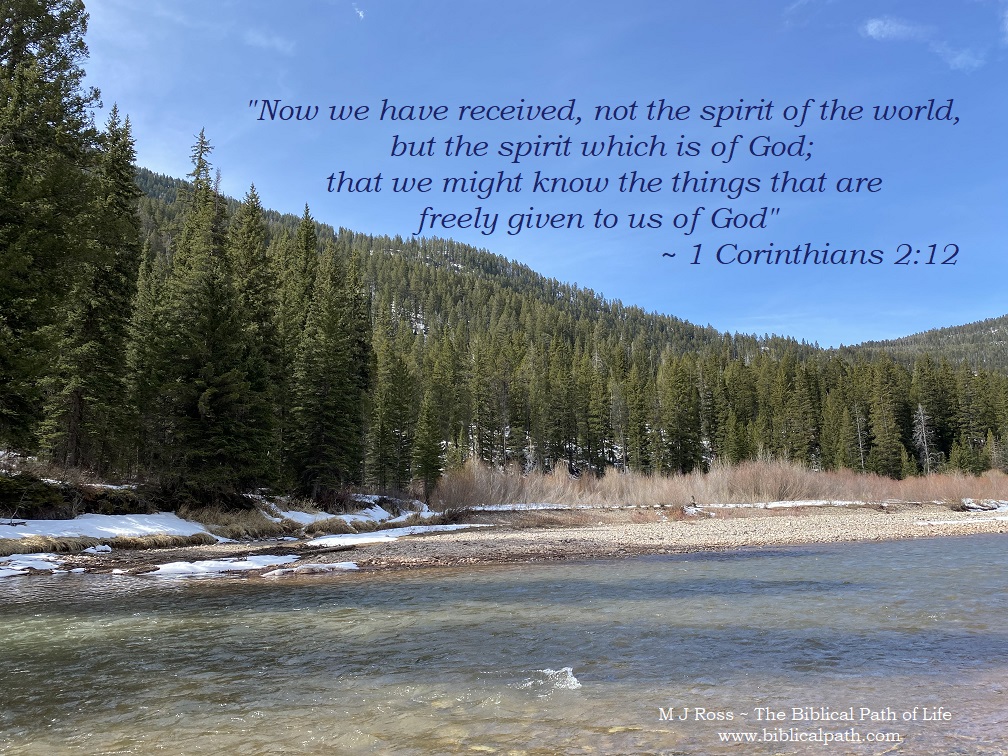
“So then they that are in the flesh cannot please God.”
Romans 8:8
All of mankind is sinful and guilty before God (see Romans 3:23). However, Jesus can take that sin away by His grace for those who have faith in Him. “For by grace are ye saved through faith; and that not of yourselves: it is the gift of God” (Ephesians 2:8). After this, Christians are to understand that we have been purchased (see 1 Peter 1:18-19). “For ye are bought with a price: therefore glorify God in your body, and in your spirit, which are God’s” (1 Corinthians 6:20). We belong to God, and we are to live for Him. However, we still live here on earth where sin reigns. What are Christians to do?
We are to remember that God’s Law not only reveals the knowledge of sin (see Romans 3:20), but reveals our sin to us (see Romans 7:7). By knowing what God’s Word says, we learn how God expects Christians to live. Nevertheless, it can be difficult. Paul explained this. “For we know that the law is spiritual: but I am carnal, sold under sin” (Romans 7:14). Paul wrote about his struggle to do right (see Romans 7:14-24). Because the new spiritual man and the old carnal man (carnal means “under the influence of the desires of things pertaining to the flesh or body”) are of opposite natures, they fight against each other. The old nature is comfortable in its sinfulness, but the new nature of Christ within hates that sin – causing conflict. Paul understood that as long as he physically lived on this earth, although in his heart and spirit he would be obeying God’s law, in his flesh he would never be perfect. Nevertheless, Paul made a choice to follow the Spirit and obey God’s Word. Paul understood it was an issue of the heart.
A Christian should never consider himself perfect, without sin, – only forgiven by Jesus.
Read what happens once we submit to and obey God’s Word. “There is therefore now no condemnation to them which are in Christ Jesus, who walk not after the flesh, but after the Spirit” (Romans 8:1). When we decide to walk after the Spirit, it means we choose to oppose the flesh, not indulging in the affections and lusts of the physical nature, but instead determine to follow God’s Spirit. We are to live our lives to the best of our ability, walking in the spirit (see Romans 8:2-4).
We can better understand this in the following verses. “5. For they that are after the flesh do mind the things of the flesh; but they that are after the Spirit the things of the Spirit. 6. For to be carnally minded is death; but to be spiritually minded is life and peace. 7. Because the carnal mind is enmity against God: for it is not subject to the law of God, neither indeed can be. 8. So then they that are in the flesh cannot please God” (Romans 8:5-8). We understand that the description “flesh” and “carnally minded” represents someone who allows sin to rule in the heart and cannot please God (“enmity against God”). On the converse, “Spirit” and “spiritually minded” represents someone who allows Jesus (who is Life) to rule in that heart. In Romans 8:9-11, we understand more about this difference, reminding us that God’s Spirit lives within us, helping us. (Especially note, “… Now if any man have not the Spirit of Christ, he is none of his” Romans 8:9b. It is important to make sure one truly belongs to Jesus. The Spirit will make that known.) With this new nature, the Spirit of God living within, Christians live differently.
Paul encourages people who have given their hearts and lives to Jesus to understand the importance of living those lives in a pleasing manner.“1. I beseech you therefore, brethren, by the mercies of God, that ye present your bodies a living sacrifice, holy, acceptable unto God, which is your reasonable service. 2. And be not conformed to this world: but be ye transformed by the renewing of your mind, that ye may prove what is that good, and acceptable, and perfect, will of God” (Romans 12:1-2). Just as Jesus willingly died for each Christian, each Christian is then to willingly present that life to Jesus as a “living sacrifice”. What does this mean? Living sacrifice means “the physical life and existence … always with some duration as a living and constant sacrifice.” God expects His people to live a life, always, as if they belong to Him – acceptable to Him. That is the very least we can do (“reasonable service”). Paul went on to remind us that because we are now spiritual creatures, we are to not be “conformed” to this world. Conformed means “to be fashioned alike; one is not to be molded by the external and fleeting manners or ways of this period of time, but to undergo a deep inner transformation that can only be brought by the Holy Spirit.” Instead, a Christian is to be transformed. Transformed means “that invisible process that begins to take place in a Christian during their life here on earth.” How are Christians transformed? By renewing one’s mind. Renewing means “a renovation which makes a person different than in the past.” One does this by reading and living according to God’s Word. Prove means “to put to the proof or examine; the notion of proving a thing whether it is worthy or not.” Once Christians know how to live, they are to implement those things into their lives.
A Christian is to live a life, not like the rest of the world, but different from the world!
Have you believed by faith, received God’s grace, and now live a transformed life, pleasing to God?
Find out how to Receive God’s Grace.








